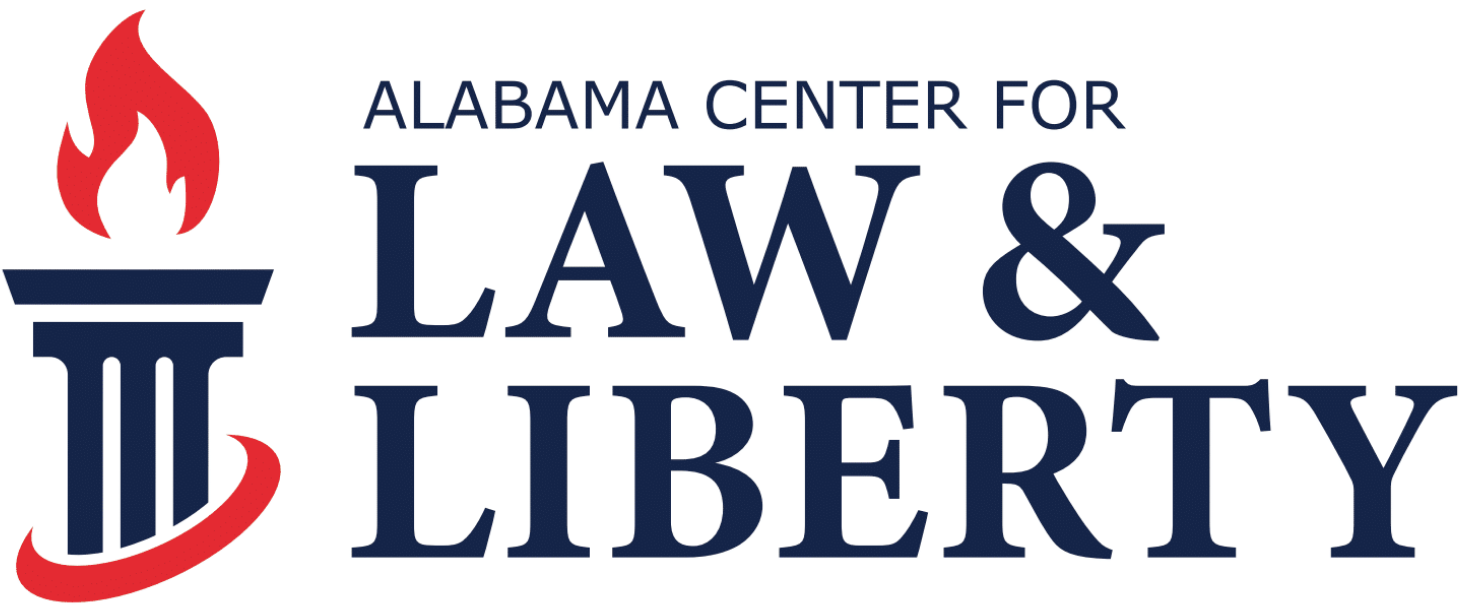Ulrich
v.
Huntsville Board of Education
ACLL Role: Amicus
Case Start Date: September 22, 2021
Deciding Court: Circuit Court of Madison County
Original Court: Circuit Court of Madison County
Practice Area(s): Limited Government
ACLL Role:
Case Start Date:
Deciding Court:
Original Court:
Practice Area(s):
Amicus
September 22, 2021
Circuit Court of Madison County
Circuit Court of Madison County
Strong Families, Limited Government
CASE SNAPSHOT
At the beginning of the 2021 school year, the Huntsville Board of Education imposed a mask requirement for children in public schools. Joshua Ulrich (pictured above), a father with children in the school system, sued to enjoin the mask mandate, advocating for personal choice. ACLL filed an amicus brief supporting him, explaining that the parental rights recognized by the United States Supreme Court and Alabama Supreme Court leave the decisions of a child’s healthcare up to the parents and not the schools, unless the schools can prove by clear and convincing evidence that such measures are necessary.
STATUS
ACLL filed a friend-of-the-court brief at the Huntsville Circuit Court on October 27, 2021.
FOR THE MEDIA

CASE SUMMARY
Background
In 2020, COVID-19 came to the United States and to Alabama. Individuals, families, and schools faced unprecedented challenges as they attempted to discern how to combat COVID-19 without shutting down society. It appeared that, for whatever reason, children were not infected with, or affected by, COVID-19 as easily as adults. Consequently, when schools resumed in-person meetings, many parents were optimistic that their children would not have to wear masks during the 2021 school year.
However, shortly before the school year began, the Alabama Department of Public Health, following a recommendation from the Centers for Disease Control, strongly urged local school boards in Alabama to adopt masking requirements for children. Several Alabama school boards adopted that recommendation, one of which was the Huntsville Board of Education.
The Inalienable and Constitutional Right of Parents Over Their Children
Beginning in 1923, the United States Supreme Court recognized that parents have a right to direct the upbringing of their children, which sometimes requires public schools to adjust their programs to accommodate parents’ wishes. The Supreme Court reaffirmed this right as recently as 2000, reasoning that parents have the right to direct not only the upbringing but also the care of their children.
The theoretical basis for these rights is the Fourteenth Amendment of the United States Constitution. While parental rights are not explicitly mentioned in that amendment, it forbids the states from abridging the “privileges” or “immunities” of United States citizens. A decent originalist argument can be made that these privileges or immunities refer to God-given, inalienable rights, which include parental rights. The Supreme Court has recognized these rights under the Due Process Clause instead of the Privileges or Immunities Clause, but the fact is that parental rights are indeed deeply rooted in America’s history or traditions. Consequently, the Supreme Court has afforded them constitutional protection. Moreover, in 2005, five justices of the Alabama Supreme Court recognized that parents have God-given, inalienable rights over their children. Thus, whether the basis for this right is the history and tradition of the United States, the Privileges or Immunities Clause of the Fourteenth Amendment, the God-given rights of parents, or all of the above, parental rights are real, and the government must respect them.
Historically, the right to make healthcare decisions for children resided with the parents, not the schools. While parents delegate some of their authority to schools when they enroll their children, that authority is the authority to restrain and correct the children for the purpose of allowing the school to accomplish its educational mission. There is a big difference, however, between the authority to restrain and correct and the authority to make healthcare decisions. The former belongs to the school, whereas the latter belongs to the parents. Because the masking of health children is a prophylactic healthcare decision, ACLL believes it belongs to the parents, not the schools.
Forcing the School Board to Prove the Necessity of the Masks
This rule is certainly not without exceptions, however. For instance, if parents sent children to school whom they knew were infected with COVID-19, then causing all the other children to get sick would cause a substantial disruption to the school’s educational mission. Thus, the school needs some authority to restrain sick children from coming to school, and we do not dispute that point.
The question then becomes whether the government could rightfully require everyone to wear masks to avoid that disruption. We proposed that the court should require the school to prove that masks are necessary by clear and convincing evidence, which is the highest standard of proof in civil cases. We also observed that the school board would have to procure expert witnesses to testify on its behalf instead of simply citing to the CDC, ADPH, or Dr. Fauci.
If the court adopts this standard, then it would allow the government to make its case that the masks are truly necessary, but it would place the burden where it belongs: on the schools, not the parents. Instead of making parents prove that masks don’t work, this test would make the government prove thoroughly that mask mandates are a
Importance to Limited Government and Strong Families
Children are not creations of the State; they are creations of the family. Therefore, parents have rights that precede the civil government’s authority and, in many cases, are superior to it. We cannot have strong families if the government believes it can override parental wishes whenever it wants, and we cannot have limited government if it can get away with displacing the family’s role in children’s lives.
Alabama Center for Law & Liberty 2213 Morris Ave, Floor 1 Birmingham, AL 35203 256-530-0519
The Alabama Center for Law and Liberty is Christian non-profit law firm.
©Alabama Center for Law & Liberty. All rights reserved.
